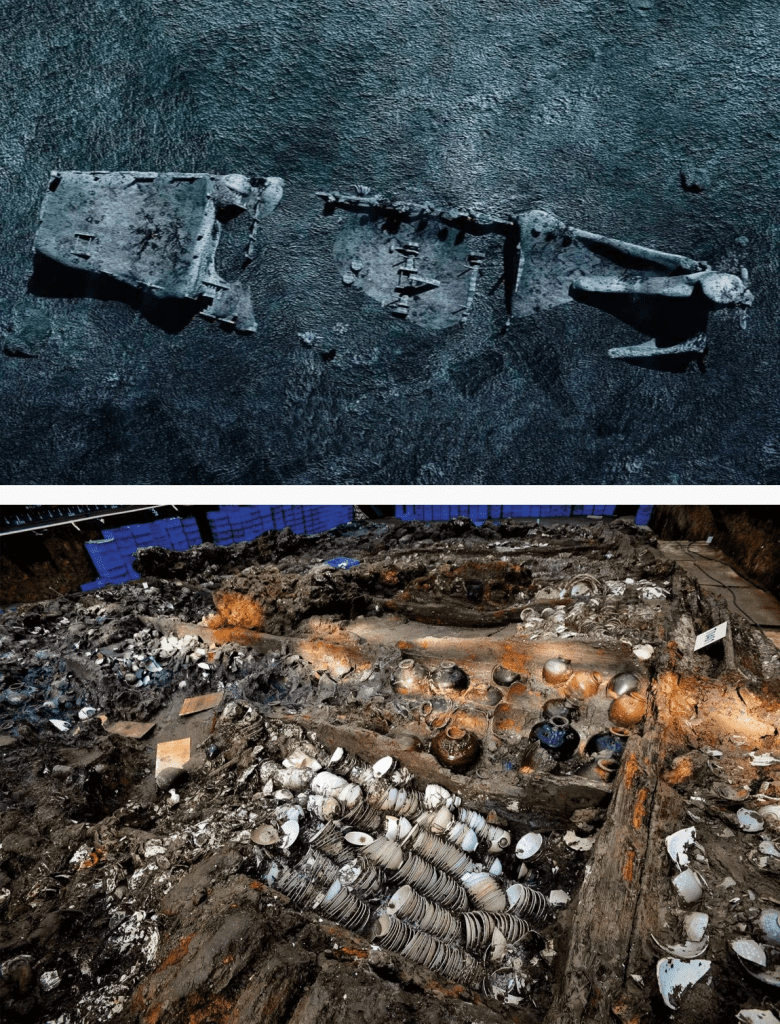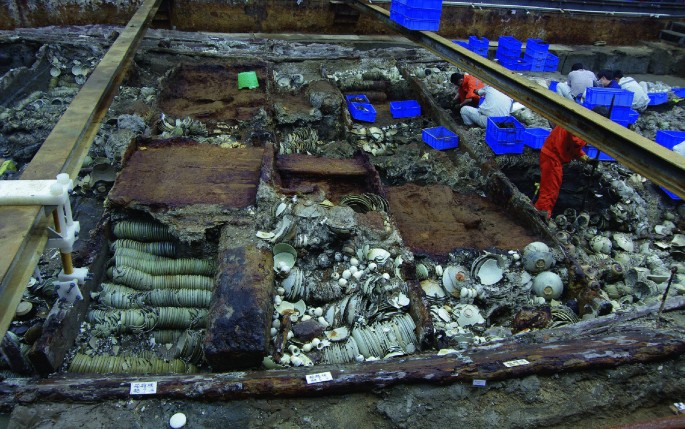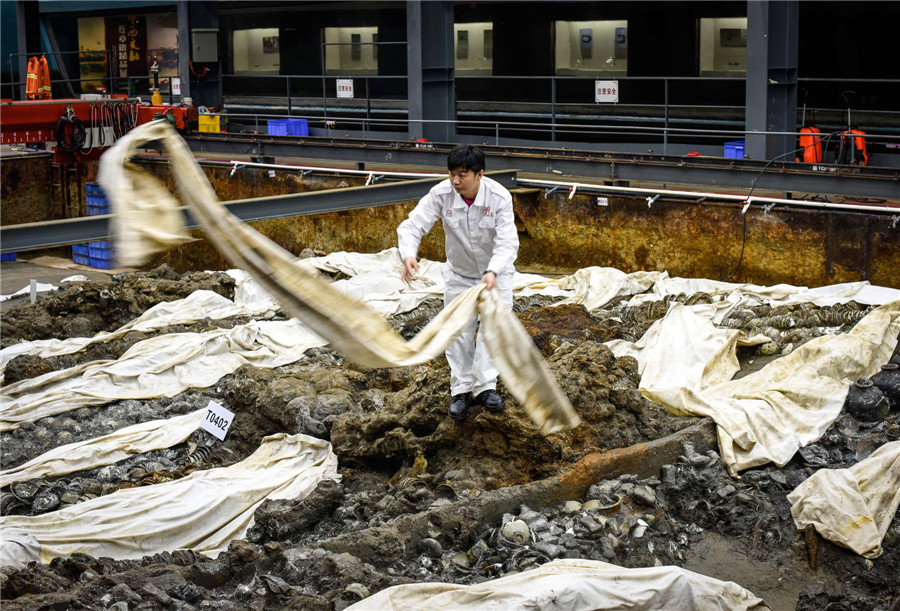When a team of underwater archaeologists set out to explore the murky depths of the South China Sea in 1987, they never imagined they were about to uncover one of the most astonishing maritime discoveries of the 20th century. Resting quietly beneath layers of sediment and time was the Nanhai One a massive wooden shipwreck from the Song Dynasty that had been lying untouched for nearly 900 years.

A Time Capsule Under the Sea
The Nanhai One (literally “South China Sea No. 1”) wasn’t just another sunken vessel. It was a maritime time capsule a silent witness to the golden age of Chinese overseas trade during the 12th century. The ship, estimated to be about 30 meters long, had remained largely intact on the ocean floor. And what it held inside was nothing short of breathtaking.

When the wreck was discovered, early surveys showed that it might contain thousands of artifacts. That alone was enough to spark interest across the global archaeological community. But no one could have guessed the full extent of its treasure trove.
Video:
Nanhai One: Removal of silt reveals shipwreck artifacts
A Delicate Operation—Two Decades in the Making
It would take 20 years to carefully plan and execute the recovery. Preserving a ship of this size and historical importance required cutting-edge engineering, patience, and an unshakable commitment to heritage conservation. In 2007, exactly two decades after its initial discovery, the Nanhai One was raised to the surface intact in a monumental feat of maritime archaeology.
Instead of removing the artifacts one by one from the seabed, scientists decided to lift the entire shipwreck and place it in a custom-made steel container filled with seawater. This protected the vessel and its contents from exposure to the air, which could have caused irreversible damage.
The ship was then transported to the Guangdong Maritime Silk Road Museum, where it now sits in a massive tank under controlled conditions. Visitors can watch archaeologists at work through glass panels as they continue to uncover and preserve thousands of delicate treasures.

A Treasure Trove of Global Trade
What did the Nanhai One carry? Over 60,000 artifacts have been recovered so far, including:
- Porcelain from Jingdezhen, destined for markets across Asia and beyond
- Gold and silver coins, hinting at trade links with the Middle East and Africa
- Lacquerware, copper mirrors, glass beads, and more each item telling a unique story
These artifacts provide undeniable proof of China’s active role in international maritime trade centuries before European exploration surged. They reflect a sophisticated global trade network operating through the ancient Maritime Silk Road, long before it had that name.
Video:
Ancient shipwreck sheds light on prosperous trade in China’s Guangdong
The Ship That Now Speaks
For nearly a millennium, the Nanhai One sat in silence, buried under sand and salt, while centuries passed overhead. Wars came and went. Dynasties rose and fell. Empires were born and forgotten. But beneath it all, this wooden ship remained, protecting its precious cargo of history.
Today, the Nanhai One speaks through porcelain painted centuries ago, through coins that crossed oceans, and through the timber of a ship that defied time. It reminds us that even after 900 years, the past can rise again to meet the present.



